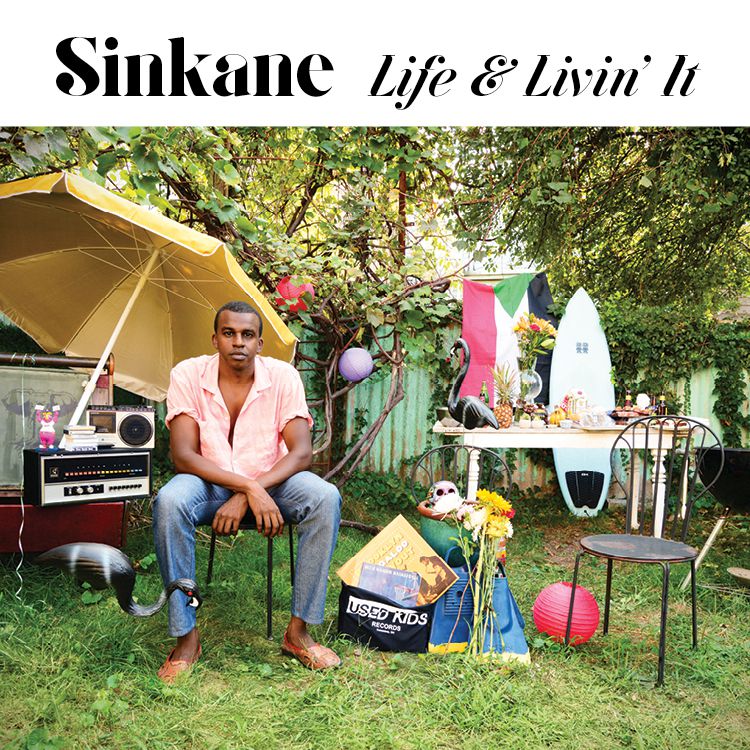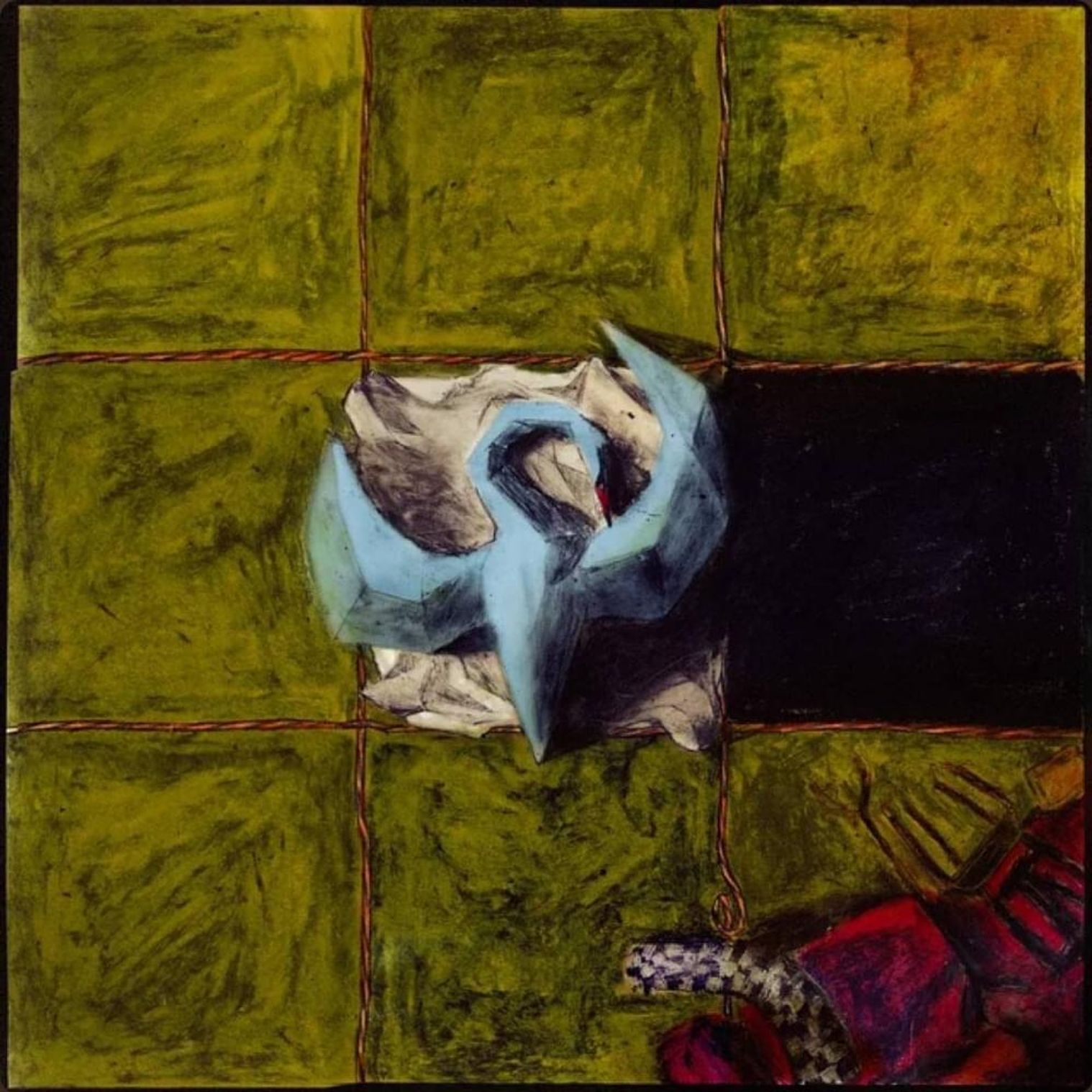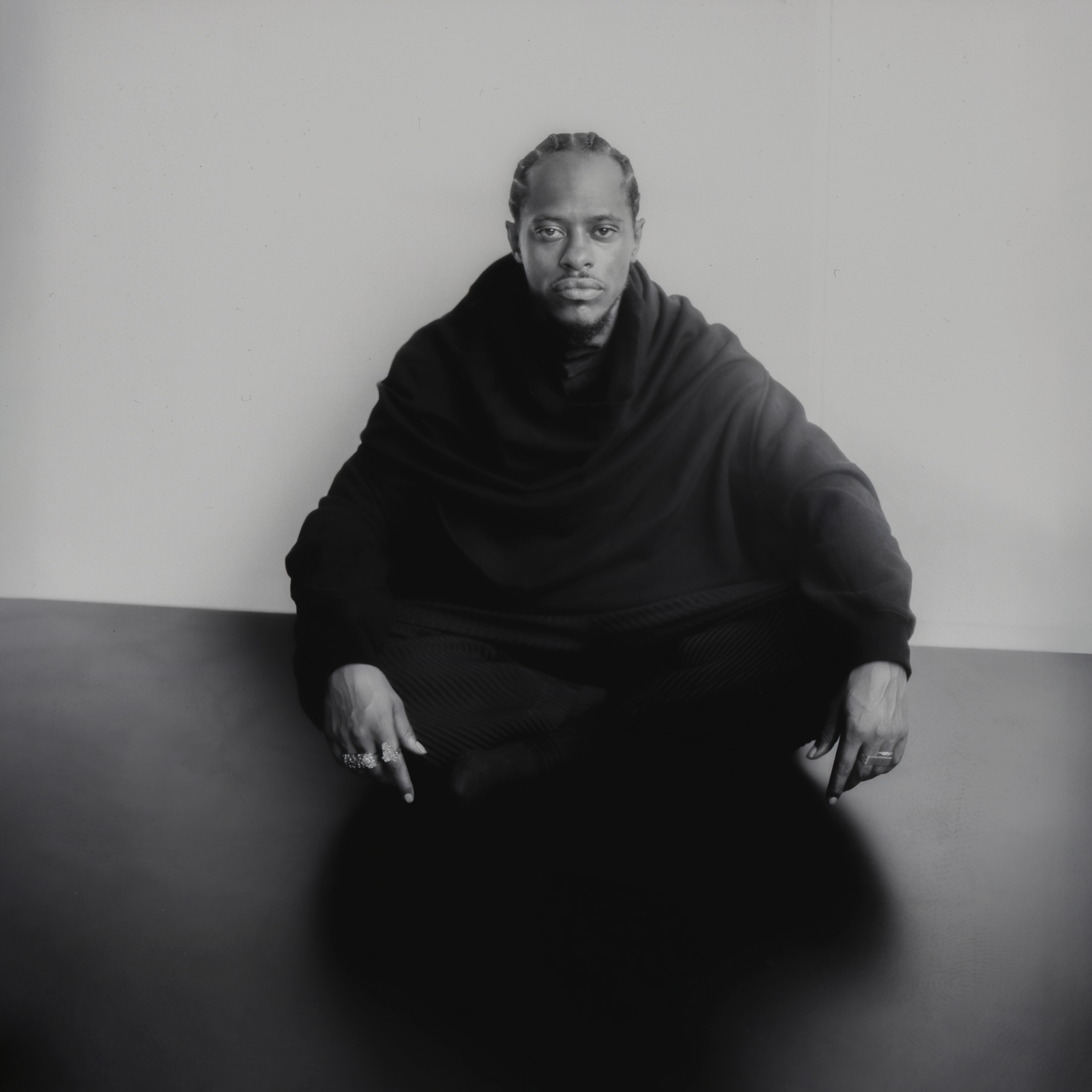A decade ago, in an instantly notorious New Yorker piece called "A Paler Shade Of White," the critic Sasha Frere-Jones wrote sadly about how, as he saw it, indie rock had abandoned any sense of rhythm. Frere-Jones wrote about going to see Arcade Fire, when that band was at its most anthemic, and he wrote about what he didn't hear: "What I really wanted to hear, after a stretch of raucous sing-alongs, was a bit of swing, some empty space, and palpable bass frequencies -- in other words, attributes of African-American popular music." At the time, this idea was such a fight-starter that Rob Harvilla and I published an entire back-and-forth quasi-argument about it. Indie rock, as Frere-Jones heard it, had crawled up its own asshole, becoming unforgivably white and retreating into plodding insularity. Frere-Jones wanted something different, and I'm going to go ahead and guess that it wasn't Arcade Fire putting on giant papier-maché heads and glitter-ball uniforms to flirt with disco and Haitian carnival music. Maybe he was thinking of something like Sinkane.
Around the same time as Frere-Jones was writing that article, a young multi-instrumentalist named Ahmed Gallab was lending out his talents to whoever needed them, and a whole lot of people needed them. On records and on tour, Gallab played with people like Caribou, of Montreal, and Yeasayer, who were never better than they were when Gallab was up onstage with them. 2007 was also when Gallab, working under the name Sinkane, released his debut EP, Sinisterals, which consisted of one 21-minute track. And even though he worked with some of the biggest artists in the indiesphere, his work as Sinkane revealed Gallab to be something other than an indie rocker. He was a pure polymath, pulling in bits of funk and disco and Afropop and soul and straight-up pop music, all done with a low-budget studio-rat auteur's sense of sonic expansiveness. (Gallab was born in London and then grew up in Sudan and Utah and Ohio, so he couldn't not have a crazy stew of influences and ideas.) Gallab was such an aesthetic omnivore that his last album, 2014's Mean Love even included a few trace elements of old-school country music, a sound he pulled off with a minimum of awkwardness.
But the brand-new Life & Livin' It is, I think, the best Sinkane album because it's the most focused. There's a sound at work on the album, though it's one that can't be narrowed down to a single genre. Instead, it's like he built a whole new genre out of all the things that had already been floating around in that sound, and then he stayed strictly within the boundaries of that genre. The sound here is lush and funky and spirited and driven, more than anything else, by rhythm. Every instrument on here, even things like flutes and arcade analog synths, feels like a part of the rhythm section, and there's a virtuosic sense of syncopation running through this whole thing, even on a slowed-down ballad like the doo-woppy, heartbroken penultimate track "Won't Follow."
It's tempting, partly because Gallab has spent much of his life in Africa, to envision Life & Livin' It as a connective tissue between actual African pop music, in all its messy and euphoric glory, and the twitchy New York art-music types, like David Byrne and Vampire Weekend, who have played around with those sounds. (A few years ago, Sinkane joined David Byrne and some others in celebrating the music of the elusive Nigerian outsider-funker William Onyeabor on tour.) But that's not quite right, either. These days, African pop music is pretty much its own pretty-great take on Jamaican dancehall, and Sinkane's album doesn't sound anything like that. Instead, it's Gallab's own particular, personal take on the trans-Atlantic sounds of the '70s and '80s. It's its own personal kind of pastiche -- the sprawling odysseys of a Fela Kuti compressed into weightless little four-minute pop songs.
Gallab doesn't get all the credit here. Sinkane might've started out as a solo project, but it's a fully formed band now. Gallab is performing with the same musicians he's been using for years, and one of the great things about the album is the organic people-in-a-room sound. These are all ferociously good musicians, and they all seem to trust each other. Drummer Jason Trammell, in particular, is an absolute beast; he can keep things steady while sounding vaguely like a set of drums falling down a very long set of stairs. And this time around, they have the help of the horn section from Antibalas, the Brooklyn Afrobeat-revivalist group, whose sudden, riffy bursts give the songs a real punch.
When everything clicks right, it's a breezy thrill. Consider "U'Huh," the second song and first single. It starts out with a rippling breakbeat, then goes into a series of horn stabs, the sort of riff that can lodge itself in your brain for days at a time. There's some delicate Isaac Hayes chicken-scratch guitar, and then there's Gallab singing in a strained falsetto, his best Curtis Mayfield, and going into call-and-response with a whole chorus of backing vocals. There's a vintage synth-riff that duels with those horns, and there's a recurring disco-call whoop-whoop. A sad, longing melody will drop in out of nowhere and then give way to the propulsion again. It's a warm and evocative and emotional sound, but it never slows down, and it never stops moving. The songs themselves aren't works of genius, and Gallab is clearly not a lyrics guy. But the sound here is enough to sustain, to create euphoric visions. It's really only an indie rock album insofar as Gallab got his start in that world, that it's an idiom -- one among many -- that he can draw on whenever he wants. But listening to it, I get the sense that indie rock could still learn a few things from Gallab.
Life & Livin’ It is out 2/10 on City Slang. Stream it below.
[videoembed size="full_width" alignment="center"][/videoembed]
[videoembed size="full_width" alignment="center"][/videoembed]
Other albums of note out today:
• Scuzz-rock supergroup Crystal Fairy's self-titled debut.
• Meatbodies' sloppy, rifftastic psych-garage attack Alice.
• Hand Habits' dazed, folky debut Wildly Idle (Humble Before The Void).
• Tinariwen's woozy desert blues collection Elwan.
• The Necks' astral experimental jazz zone-out Unfold.
• Teen Daze's meditative electronic LP Themes For Dying Earth.
• Skyway Man's UFO-influenced roots album Seen Comin’ From A Mighty Eye.
• Palberta's experimental rocker Bye Bye Berta.
• Pelican guitarist Trevor De Brauw's solo debut Uptown.
• Jesca Hoop's stark rocker Memories Are Now.
• Lowly's hypnotic postpunker Heba.
• The Sadies' roots-rocker Northern Passages.
• Lupe Fiasco's probably-very-wordy DROGAS Light.
• The Fifty Shades Darker soundtrack.
• Danny Brown and Paul White's collaborative EP Accelerator.
• Beach Slang's Here I Made This For You Mixtape Volume II EP.






